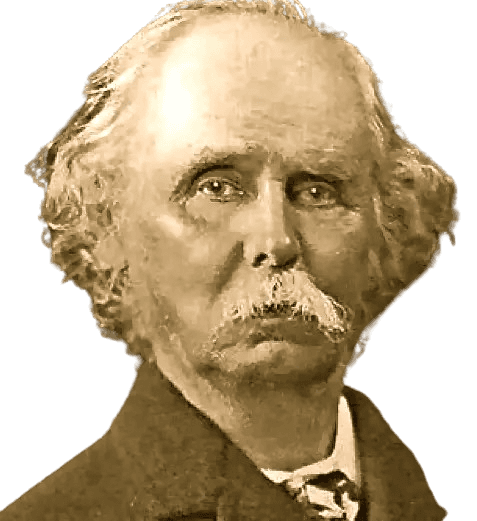Life and achievements
Early life
Alfred Marshall was born to a religious family on July 26, 1842, in Bermondsey, London. His father, William Marshall, was a Bank of England employee, and young Alfred was raised in a spiritual family. This environment influenced his philosophical preferences; he initially considered becoming a priest. However, his academic abilities, particularly in mathematics, took him on a different path. Marshall was educated at the Merchant Taylors' School and then got admitted to St John's College, Cambridge, where he was a brilliant mathematician and a Second Wrangler in the Mathematical Tripos.
Marshall got a new direction to his thinking while studying at Cambridge. He had a nervous breakdown, which made him quit physics and turn to philosophy and ethics. His interest in metaphysics and practical ethics, which he developed under the guidance of such philosophers as Henry Sidgwick, led him to the social sciences. It was this concern for the moral well-being of society that led him to economics in the end. Marshall was interested in economics as a means of improving the lot of the working man, which was a view that he would carry with him in his future work.
Marshall's early academic experience can be described as interdisciplinary, involving mathematics, philosophy, and social sciences. He was elected to a fellowship at St John's College, Cambridge, in 1865, signifying his academic career's start. During this period, Marshall enhanced his knowledge of the economic affairs of his time, especially industrialization and social questions.
Legacy
Alfred Marshall's impact is immense, especially in economics, in which he contributed immensely to shaping the foundations of modern-day economics. His work provided the basis for neoclassical economics, and his ideas have been carried on by many economists who came after him. Marshall's strength was combining mathematical formalism with actual life application of economic concepts. He was also very keen that economic models should be based on scientific principles and be understandable to the man in the street. This was quite radical then and is still a key concept in economic education.
Marshall's Principles of Economics was the most influential textbook for the English-speaking world for many years. The impact of the model in microeconomics must be considered, especially in the analysis of supply and demand, price determination, and market equilibrium. His pictorial illustrations of these ideas, such as the supply and demand curves, are now standard equipment in the economist's kit. Marshall's focus on marginal analysis brought a new perspective to economic decisions at the individual level and transformed the theoretical and applied understanding of economics.
Marshall also contributed to developing economics as an academic discipline in society. At Cambridge, he helped form the Faculty of Economics and Politics and the first degree in economics. He was able to impart his knowledge to some of the leading economic scholars of the twentieth century, such as John Maynard Keynes and Arthur Cecil Pigou. He wanted to make economics a science to help people improve their lives and society. This led to a more ethical and people-oriented approach, combining rigorous mathematical analysis and moral concerns.
Marshall was a very learned man, but he was not conceited and would tell his students to do better than him. His legacy is also evident in the institutions and traditions he formed, such as the Cambridge School of Economics. His contributions are still relevant in economic analysis, especially in microeconomics and welfare economics.
Milestone moments
Jul 31, 1842
Birth of Alfred Marshall
Alfred Marshall was born to a religious and academic family on December 26, 1842, in Bermondsey, London.
He was an intellectual child with a particular interest in mathematics, which defined his future learning process.
In this regard, his childhood in a strict Evangelical family helped him to develop a desire to answer moral and philosophical questions that would later affect his economic vision.
May 16, 1865
Marshall Graduates from Cambridge
Marshall was a St John's College student at Cambridge University and was particularly good in mathematics.
He obtained the second-highest position in the Mathematical Tripos, one of the university's highest achievements.
This period is the start of his interest in philosophy and, further on, in economics.
Aug 20, 1890
Marshall writes Principles of Economics
Marshall started working on his masterpiece, the Principles of Economics, in 1881.
In the subsequent ten years, he developed and enriched the work to produce a systematic approach to economic analysis.
It was published in 1890 and became the most popular economics textbook of the nineteenth century.
May 16, 1903
Creation of the Faculty of Economics at Cambridge
Marshall was instrumental in forming the Faculty of Economics and Politics at Cambridge University.
This was the first time economics was established as an individual department of study in one of the most prestigious learning institutions worldwide.
He also contributed to the development of the first economics degree program at Cambridge, which would later influence the education of future economists.
